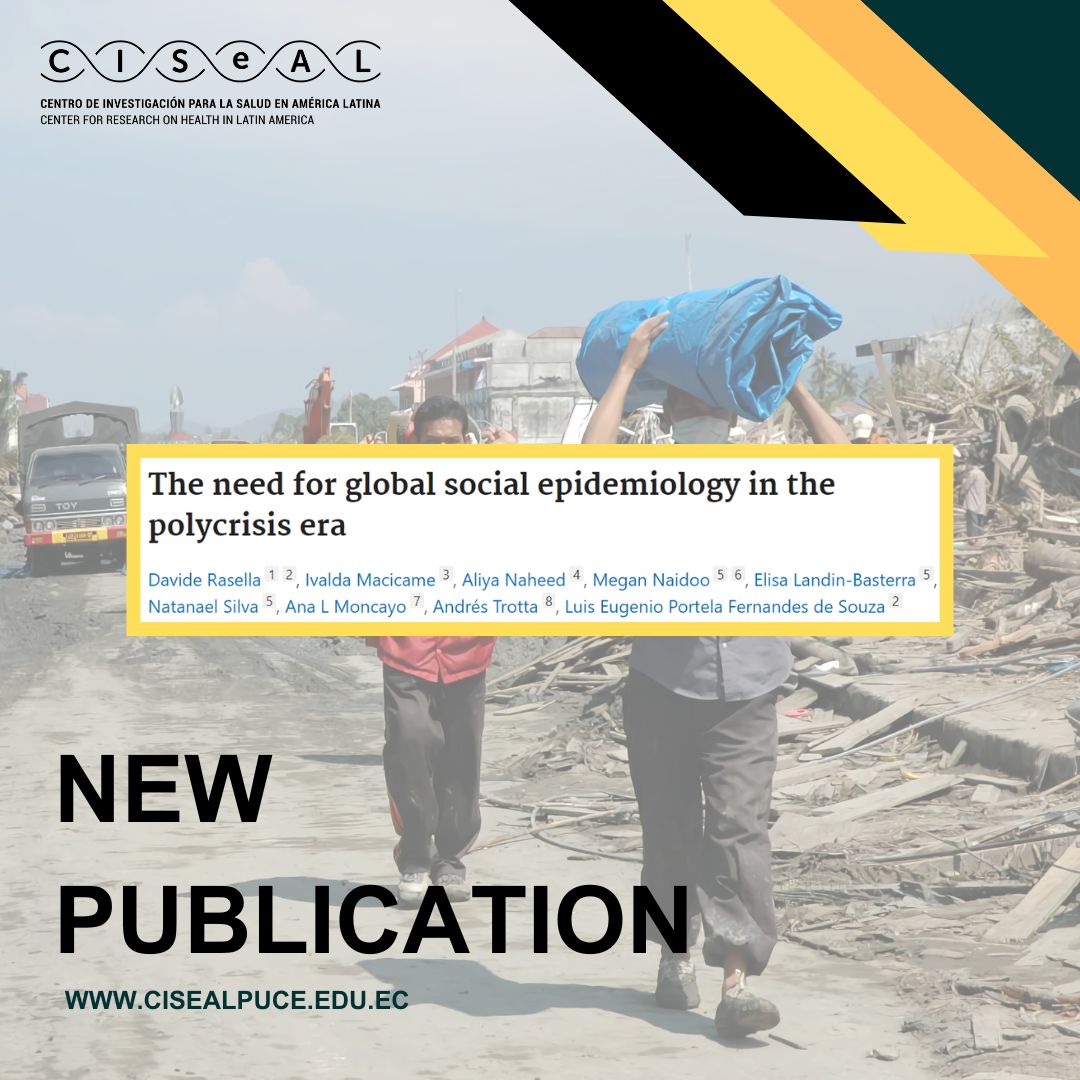 In her recent contribution to “The need for global social epidemiology in the polycrisis era”, our CISeAL Principal Investigator Ana Lucía Moncayo explains how the accumulation of several global crises, such as the COVID-19 pandemic, international conflicts, economic instability and climate change, has created an era of polycrisis. These events are not only simultaneous, but interact and amplify their effects on a global scale, disproportionately affecting the most vulnerable populations and exacerbating poverty and inequality worldwide.
In her recent contribution to “The need for global social epidemiology in the polycrisis era”, our CISeAL Principal Investigator Ana Lucía Moncayo explains how the accumulation of several global crises, such as the COVID-19 pandemic, international conflicts, economic instability and climate change, has created an era of polycrisis. These events are not only simultaneous, but interact and amplify their effects on a global scale, disproportionately affecting the most vulnerable populations and exacerbating poverty and inequality worldwide.
From a public health perspective, it highlights how the era of polycrisis has led to a dramatic decline in the social determinants of health (SDOH), dramatically increasing morbidity and mortality among the poorest and widening health disparities.
In this context, social epidemiology, which has traditionally generated a wealth of evidence on how social vulnerabilities and inequalities influence various diseases and health conditions, focuses mainly on descriptive studies in high-income countries.
It underscores the need to renew and broaden the scope of social epidemiology into global social epidemiology (GSE), a new approach that could prove more effective in meeting the challenges of this era of polycrisis. This holistic approach would not only enable us to better understand, but also to mitigate the negative effects of interconnected crises on public health at the international level, by prioritizing interventions that protect the most vulnerable and promote long-term resilience in the face of global adversity.
We invite you to read the full article at the following link:



